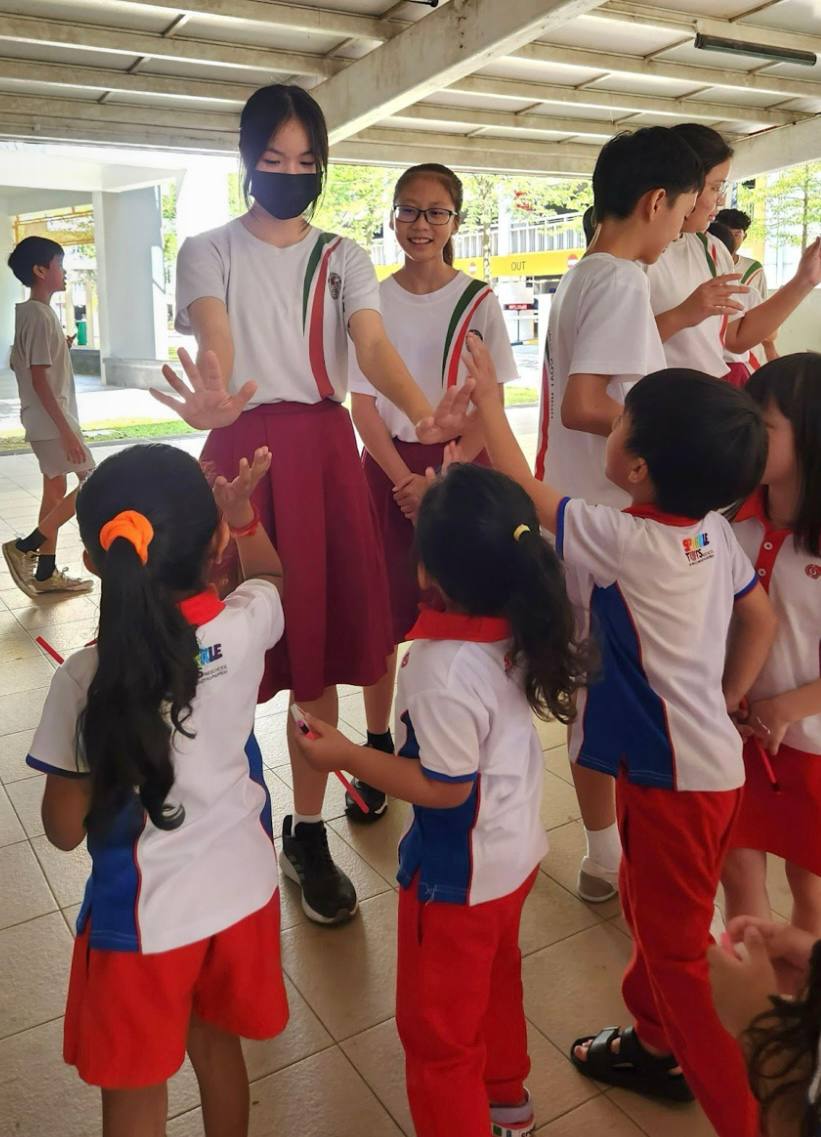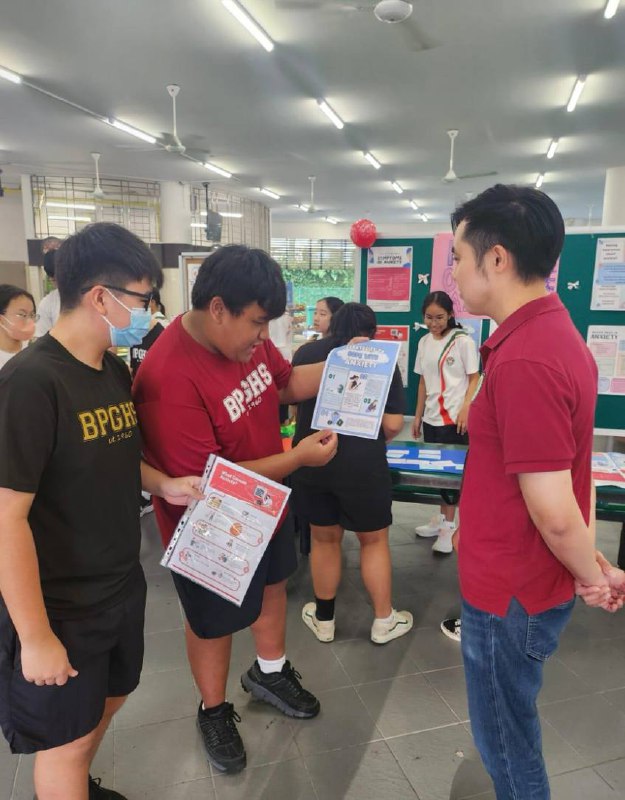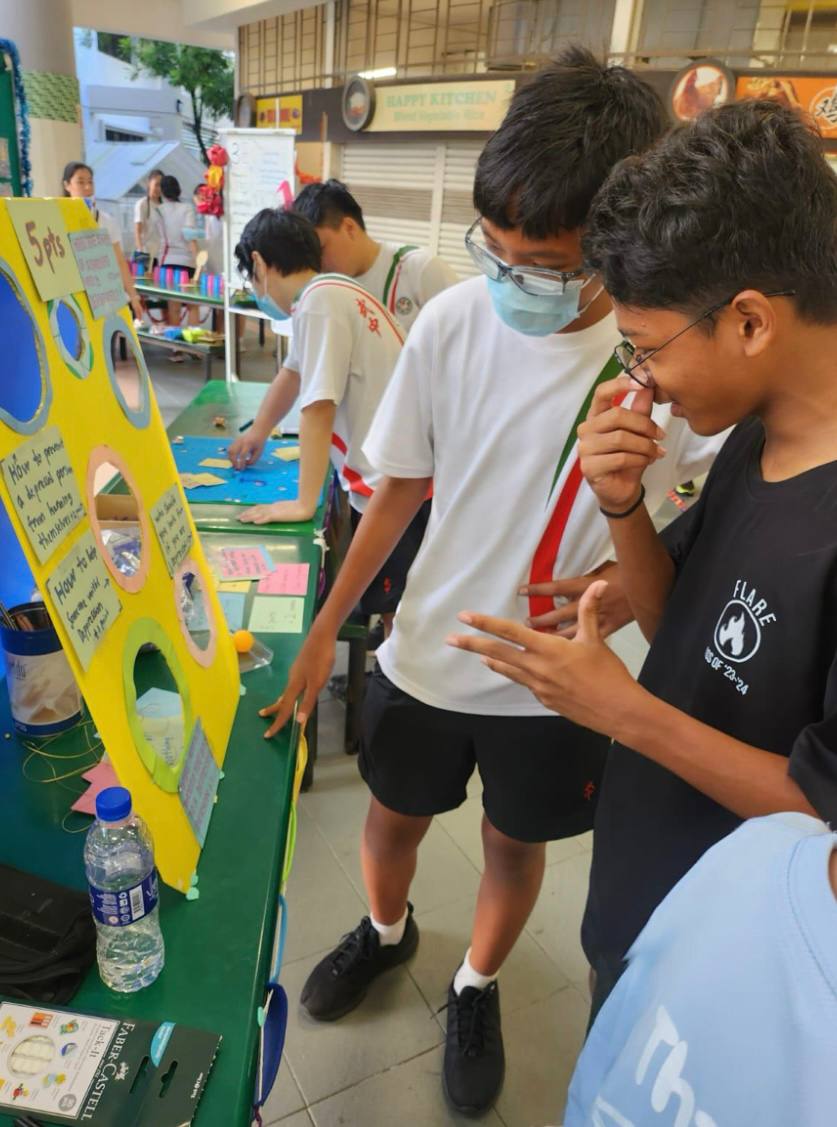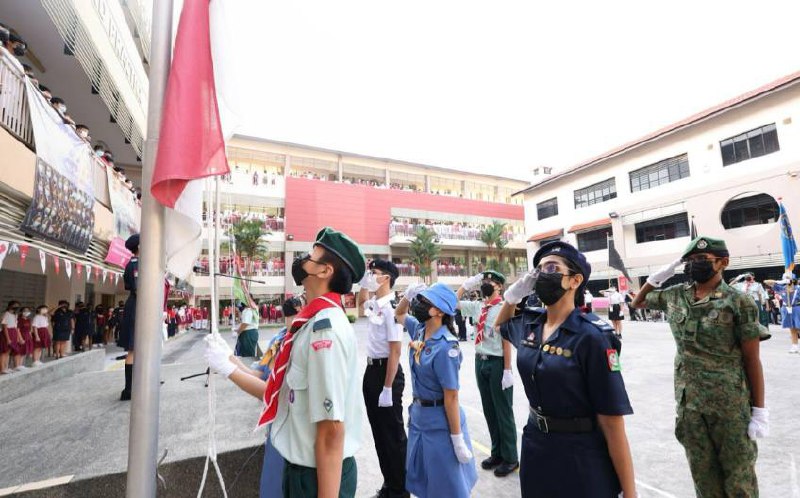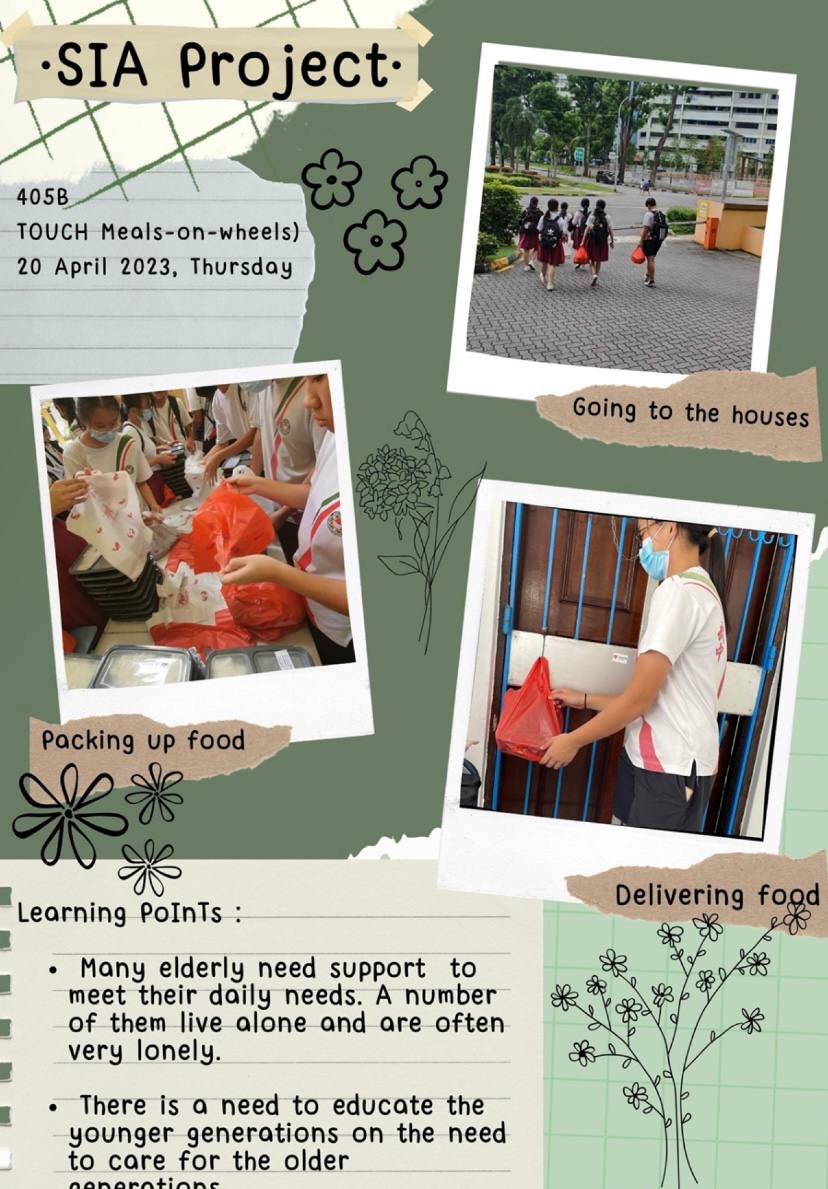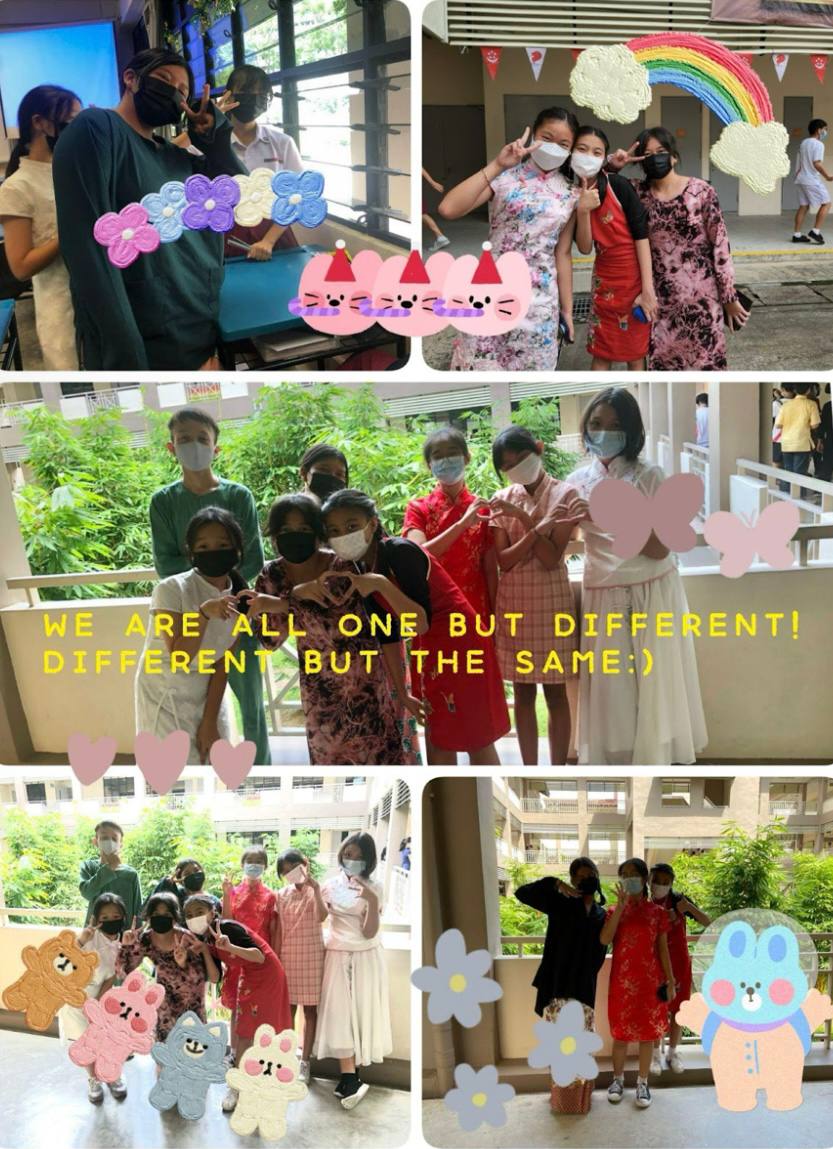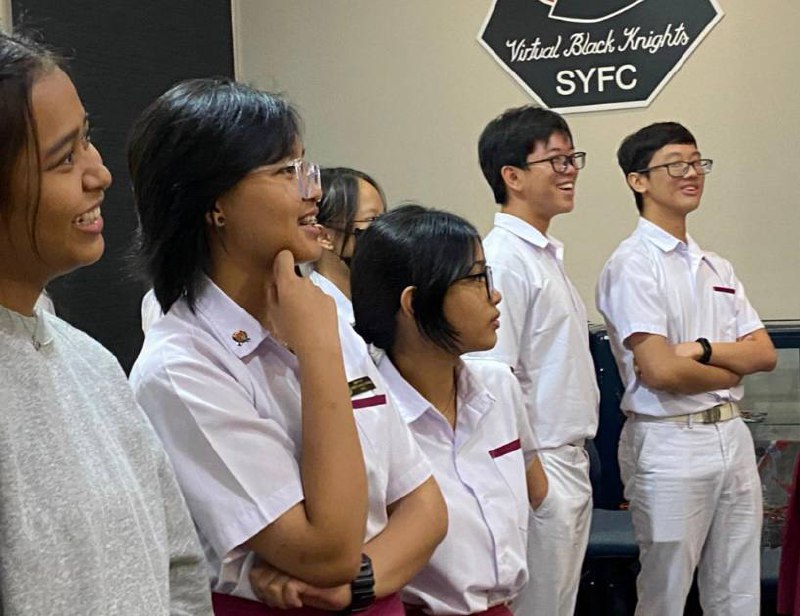Character and Citizenship Education
Character and Citizenship Education
To access a list of CCE programmes, click on the menu tab at the top of this page (mobile version).
Character and Citizenship Education (CCE) is at the heart of education in Singapore. Through CCE, students learn values, social-emotional competencies, and develop character and citizenship dispositions that enable them to grow holistically and learn for life.
The goals of CCE in BPGHS is to develop every BPian into an inspiring leader who embodies the school values (respect, responsibility, resilience, integrity and care for others) and a heart to serve. By developing inspiring leaders, we develop in them.
1. The heart to serve for a good cause
The school values (respect and care for others)
-
We hope that their concern for people will drive them to work towards a better world, better Singapore and better community.
The school values (responsibility and resilience)
-
We hope they would take the lead, take up responsibility and persevere despite the challenges.
The school values (integrity)
-
We hope to develop in them a sound moral compass, a sense of right and wrong to take responsibility and lead others towards a good cause.
2. The social emotional competencies.
-
These would provide them a balanced sense of self, form healthy relationship, find meaning in life and have a sense of total wellbeing.
3. The citizenship dispositions
-
These includes a sense of belonging to the nation, a sense of hope in themselves and the future and the will to act on building a better tomorrow and the future for our nation.
4. The future readiness
-
To be future-ready, BPians would have a sense of purpose in life, develop the dispositions of adaptability and lifelong learning so as to navigate education and career pathways and to take on the challenge to serve their personal mission.
Learning experiences for every BPian
1. Student development experiences
Every school experience is a CCE learning experience. To ensure learning, school experiences are meaningfully arranged so that students would spend time preparing for the school experiences, implement what they planned and reflect on their learning. This approach is pervasive throughout the 4-5 years in BPGHS in programmes such as cohort camps, national education commemorative days, values in action (VIA) activities, mental wellbeing programmes, cyberwellness programme and student leadership learning.
2. Student leadership development
The school adopt the five practices of the leadership challenge model to develop in BPians the skills required of an inspiring leader. Students are taught the five practices in the CCE lessons and are required to demonstrate these practices in the projects given to them such as the VIA programmes, the National Day project, the CCA projects and the Mental Wellbeing Day project.
3. Values in Action (VIA)
The values in action (VIA) programmes provides students the excellent opportunity to apply the knowledge they learn in the CCE lessons into action. This includes the application of the school values and the five leadership practices.
Using the design thinking approach, the level VIA programmes provide students the opportunity to plan for activities to benefit the community through understanding the community, defining the project, ideating the plan, prototyping, implementing and reflection. This process allows students to learn and practise 21st century skills such as adaptive thinking, inventive thinking and communication skills.
Activities planned for the levels include efforts towards the environment, providing joy to the elderly, providing learning to pre-schoolers and organising game booths for fellow BPians. For the Sec 4 students, the students get a choice on the area of community needs they wish to work on. BPians get to source for the VIA partners to find out the community needs and plan the project to suit their needs.
Besides the level VIA, BPians are encouraged to organise their own student-initiated projects and they are mentored by the Student Leadership teacher mentors to implement such projects.
4. National Education (NE)
The aims of NE are to provide BPians with the knowledge, skills and values to understand Singapore’s history, realities and challenges, appreciate our journey to nationhood and cultivate the instincts for the nation’s survival.
In the CCE lessons, BPians gets to discuss contemporary issues. Through these discussions, BPians gets to develop critical thinking skills and perspective taking skills while understanding, the local, the regional and the global issues. Other than the CCE lessons, NE learning journeys are planned for BPians.
In every class, there are two NE ambassadors. These NE ambassadors meet to plan class and school activities in the four NE commemorative days (namely Total Defence Day, International Friendship Day, Racial Harmony Day and National Day). Through their planning, they develop their student leadership skills and 21CC skills such as communication and inventive thinking skills.
5. Education and Career Guidance (ECG)
BPians today face a future that will be very difficult from the parents and the teachers. Education and Career Guidance is about equipping BPians with the necessary knowledge, skills and values to make informed decisions for successful transition from school to post-secondary secondary and to manage their career pathways and life learning throughout their lives. Through ECG, BPians explore their strengths and abilities, examine their life’s purpose and develop the skills to stay relevant for the future.
BPGHS partners with more than 30 partners from the industries and all the post-secondary education institution to bring different programmes to BPians. Particularly for the upper secondary, BPians get to talk to partners from the industries and have at least two learning journeys to the industries.
6. Cyber Wellness (CW)
Information and Communication Technologies (ICT) are becoming increasingly pervasive in our world. While creating instant connectivity and access to vast repositories of information, knowledge, and opinions, the open nature of the Internet can expose BPians to undesirable content and influences. Cyber wellness in CCE is important as it focuses on the well-being of BPians as they navigate cyberspace, equipping them with the knowledge and skills to harness the power of ICT for positive purposes, maintain a positive presence in cyberspace, and be safe and responsible users of ICT.
The school believes in providing opportunities for BPians to teach BPians. In each lower secondary class, the peer support leaders get to create their own lesson package on cyber wellness and teach fellow classmates during the CCE lessons.
7. Mental Wellbeing (MWB)
Mental health is about having a balance in various aspects of life, and learning values and social-emotional competencies to cope with life’s situations, relate to others and contribute to the community.
In BPGHS, mental well-being CCE lessons helps students to strengthen their resilience and well-being; differentiate between stress, distress (overwhelming stress), and illness; enhance help-seeking efficacy; as well as destigmatise mental illness.
The school has a progressive programme that strengthens their social-emotional competencies through teaching them the relevant Habits of Mind in their lower secondary years. From secondary 2 to 3, they also goes through two different workshops to help them understand the different issues in mental health and how to overcome each issues. By secondary three, BPians becomes our mental wellbeing ambassadors as they worked towards equipping the other BPians with the knowledge of mental wellbeing through games.
